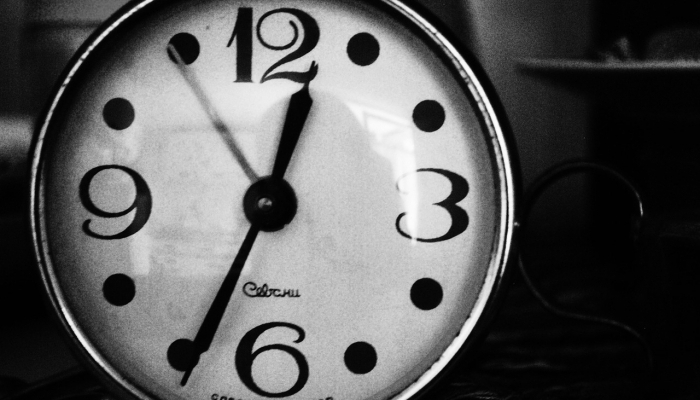uncategorized
How to Identify and Hire Stellar B2B Sales Reps
Here at Accent, we’re really big on improving sales rep performance and turning C sellers into A sellers. But I think we can all agree that hiring A sellers right from the start is vastly preferable to improving subpar performance over time. If you hire the right rep, you can benefit from a much faster ramp up time and stronger sales results.
Sounds good, right? But it’s one thing to say “we only hire the best” and another thing entirely to have a solid process in place for ensuring that every hire is a worthwhile investment. If your current hiring process isn’t leading to all winners, then it’s time to reevaluate. Below, we outline a simple yet effective way to tell between reps who will stay behind the curve and reps who will lead the team.
The Job Listing
Identifying a stellar sales rep starts long before you meet the rep in person. If you want to pull in the right kind of talent, you have to ensure that you’re advertising the right benefits to the right crowd.
The main problem with sales positions is that they’re so often seen as a last resort option for people without any real career path. The field has an unfortunately high turnover rate, and businesses are constantly searching for new talent. In fact, the Bridge Group found that more than 1 in 10 companies have annual sales rep turnover rates of 55% or more. So you get tons of applicants who figure they’ll give sales a try. Certain phrases, like “virtually limitless earning potential,” pulls in even more of these unqualified candidates.
A skilled and experienced sales rep is going to be familiar with the typical sales incentives and payment formats. Instead of focusing on commissions and sales bonuses, craft your job ad with terminology that lets the rep know you understand his or her needs and have fostered a great environment for helping reps succeed. Talk about your onboarding process, sales methodology, sales enablement tools, etc. And as is the case with most sales-related communication: keep it short, sweet, and to the point.
As far as placement goes, there are plenty of great job posting sites that are worth pursuing. But whether your company prefers Indeed or Monster, what’s really important is that you’re also listing on LinkedIn. Especially in B2B sales, social selling has made LinkedIn a “must have” platform. By directing your recruiting efforts to LinkedIn, you’re narrowing in on the reps who are actively demonstrating a skill your company needs.
The Resume
Once you’ve posted your ad and the applications have started flooding in, it’s time to pick out the best resumes from the pile. You may be tempted to just prioritize anyone with previous sales experience, but keep in mind that previous experience does not mean previous good experience.
Here are a few checklist items that any stellar rep’s resume will have:
- Strong Communication Skills: Is the resume well-organized, error-free, and easy to read? If the answer is no, you have just gotten a sneak peak of how they’ll communicate with future prospects. If they can’t supply a grammatically correct and legible resume during a job interview, they’re not likely to put more care into correspondence with their leads.
- Concrete, Proven Success: Work experience in a resume should list more than just responsibilities and duties. It should showcase the rep’s accomplishments. Do they have a track record of meeting or exceeding quota? How much revenue did they bring in at their previous position? Clearly defined numbers are a sign of a rep who has it all together.
- Sufficient Time Spent in One Place: Employees these days tend to flit from one company to the next on a whim. Many businesses accept this as just the way it is, but keep in mind that Aberdeen research found that on average, it takes more than 6 months for a rep to be fully onboarded and productive. On top of that, hiring a rep costs an average of $29,060. So if the applicant’s previous work history shows that they haven’t stayed at a single company longer than a year, you might want to reconsider the value of your investment in hiring that rep.
The Interview
Okay, you’ve vetted the resume and scheduled an interview with your top applicant. Once the rep walks through the door, how do you accurately weigh sales talent? We like to break it down into two main categories: personality and questions.
Personality
Studies show that the majority of interviewers know within the first 5-15 minutes whether or not the applicant is a good fit, and a lot of that has to do with personality. When you meet a stellar sales rep, you don’t need to be told that the rep works in sales. You already know. Within two minutes of meeting you, a strong sales rep will know your name, your favorite TV show, and what you had for breakfast, and none of the questions will have felt forced.
SEE ALSO: How to make the most of your sales reps’ personalities
Sales reps are natural communicators who easily form bonds with new people. So if getting the applicant to converse with you is like pulling teeth, just pretend you’re a new client. Would you buy from this rep? If the answer is a resounding no, then no matter how the rep responds to the interview questions, it’s clear that there’s not a good fit.
Interview Questions
Every company’s interview process is different, and the questions that make sense for one business would be totally out of place for another. Moving beyond the typical questions about previous work experience or skills with Salesforce, it’s always a good idea to include some questions that allow you to assess the rep’s critical thinking skills and gives the applicants a chance to showcase their sales abilities.
Here are some of our favorites:
- “How many gas stations are there in Texas?”
On the surface, this question is totally unrelated to sales. You might even have applicants who protest such an obscure question thrown at them. But you’re not hiring based on the candidate’s knowledge of the Texas oil industry. A question like this allows you to judge whether the applicant is able to think critically. If they answer 50 stations or 5 billion stations, you might want to reconsider whether or not they can make the logical leaps necessary to succeed in a B2B sales environment.
- “Sell me this pen.”
The film Wolf of Wall Street made this common interview question famous. The rep is tasked with selling a common object, like a pen, to the interviewer. This question gives you a sneak peek into the rep’s selling tactics. You might even consider asking the candidate to sell you on your specific product.
- “What’s your favorite sales book?”
Not everyone is a fan of non-fiction novels, but this question does open up the discussion to a more critical need: reps who are consistently improving their sales skills. Whether the rep starts talking about their favorite sales blog or the last podcast they listened to, the important thing is to gauge how enthusiastic they are about learning and how immersed they are in the sales industry.











